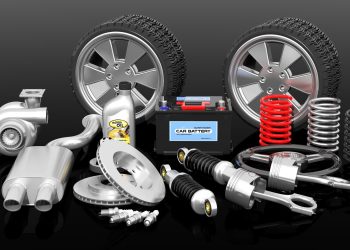In the realm of automotive innovation, few advancements have been as transformative as the introduction of the 12V lithium automotive battery. Revolutionizing the way vehicles harness and store energy, this technological marvel has reshaped the landscape of transportation, offering unparalleled performance, efficiency, and reliability. Join us on a journey through time as we explore the fascinating history of the 12V lithium automotive battery.
The Genesis of Innovation:
The roots of the 12V lithium automotive battery can be traced back to the early days of lithium-ion technology in the 1970s. As researchers delved into the potential of lithium as a superior material for rechargeable batteries, automotive engineers recognized its promise for powering vehicles with greater efficiency and reliability than traditional lead-acid batteries.
Pioneering Efforts:
In the late 20th century, pioneering companies and researchers began experimenting with lithium-ion batteries for automotive applications. While initial efforts faced challenges related to safety, cost, and scalability, these early endeavors laid the groundwork for future breakthroughs in battery technology.
The Rise of Electric Vehicles:
The dawn of the 21st century marked a turning point for the automotive industry, as concerns over environmental sustainability and dependence on fossil fuels spurred interest in electric vehicles (EVs). Companies like Tesla Motors played a pivotal role in popularizing EVs equipped with lithium-ion batteries, showcasing the potential for zero-emission driving powered by clean energy.
Advancements in Lithium Technology:
As demand for electric vehicles grew, so too did the need for more advanced battery solutions. Engineers and researchers focused their efforts on optimizing lithium-ion chemistry for automotive applications, developing innovative materials and manufacturing processes to improve energy density, charging speed, and overall performance.
The Emergence of 12V Lithium Batteries:
While early electric vehicles primarily utilized high-voltage battery packs, the automotive industry recognized the need for auxiliary 12V batteries to power essential systems such as lights, electronics, and safety features. Enter the 12V lithium automotive battery – a compact, lightweight solution that offered superior performance and reliability compared to traditional lead-acid counterparts.
Advantages Over Lead-Acid Batteries:
The transition to the 12V lithium battery represented a significant leap forward for vehicle manufacturers and consumers alike. These advanced batteries boast several key advantages over lead-acid alternatives, including:
- Lightweight Design: Lithium batteries are significantly lighter than lead-acid batteries, reducing overall vehicle weight and improving fuel efficiency.
- Enhanced Performance: Lithium batteries deliver more consistent power output and maintain higher voltage levels throughout their discharge cycle, ensuring reliable performance in a wide range of operating conditions.
- Faster Charging: With rapid charging capabilities, lithium batteries allow for shorter recharge times, minimizing downtime and maximizing driving range.
- Longer Lifespan: Lithium batteries typically have a longer lifespan than lead-acid batteries, requiring less frequent replacement and reducing maintenance costs over time.
The Future of Automotive Power:
As the automotive industry continues to evolve, the future of the 12V lithium car batteries look brighter than ever. Ongoing research and development efforts are focused on further improving energy density, durability, and safety, paving the way for next-generation electric vehicles equipped with advanced battery technology.












